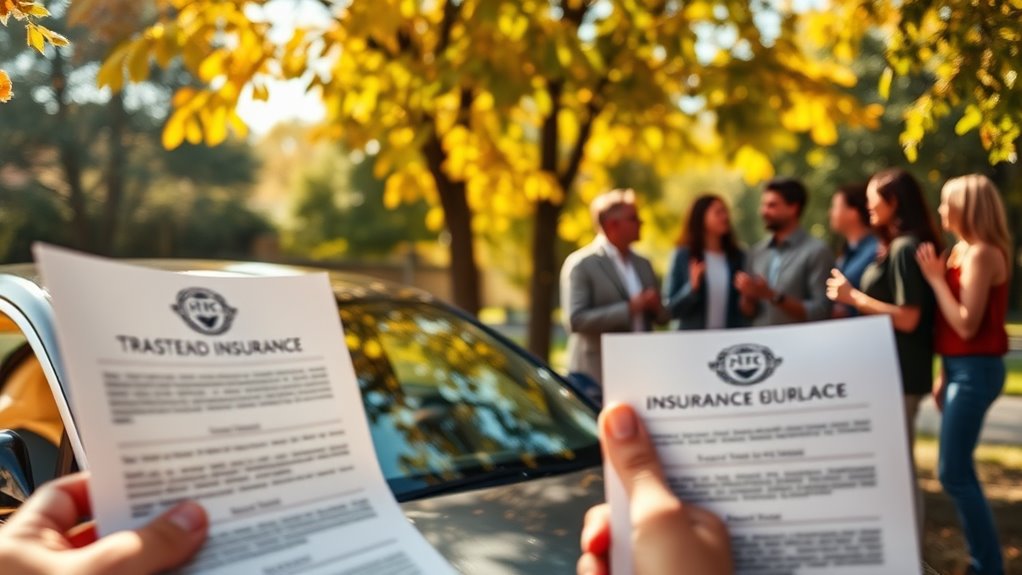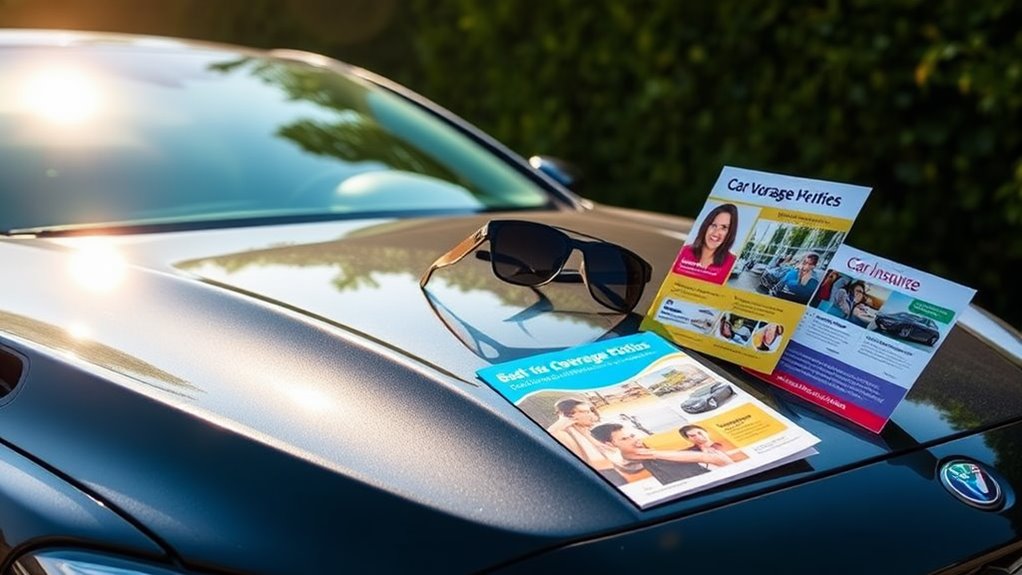Steering through the maze of car insurance options can feel like a high-stakes game of chess. To protect yourself and your assets, you need to know the best coverage choices available. From extensive policies to specialized plans like non-owner and rental car insurance, each option serves a unique purpose. Understanding these choices can greatly impact your financial security on the road. So, what specifics should you consider to make the most informed decision?
Key Takeaways
- Non-Owner Car Insurance: Ideal for those who frequently borrow vehicles, providing liability coverage without the expense of owning a car.
- Rental Car Insurance: Offers short-term coverage for rentals, including liability and protection against damages, perfect for occasional drivers.
- Comprehensive Coverage: Covers a range of potential damages to your vehicle and others, protecting against theft, vandalism, and natural disasters.
- Liability Insurance: Essential for all drivers, covering bodily injury and property damage claims, ensuring legal compliance and financial protection.
- Medical Payments Coverage: Provides financial assistance for medical expenses resulting from an accident, beneficial for those without health insurance.
Understanding Non-Owner Car Insurance

Non-owner car insurance serves as an important option for individuals who drive but don't own a vehicle. This coverage provides vital liability protection, including bodily injury and property damage, that safeguards you when borrowing or renting cars. It acts as secondary coverage, enhancing the vehicle owner's policy limits. Furthermore, maintaining non-owner insurance guarantees you meet legal requirements for proof of insurance, especially when reinstating a driver's license. It can also help you avoid gaps in coverage history, which may lead to increased premiums later. While it doesn't cover extensive or collision damages, it may include medical payments or uninsured motorist protection, depending on the policy. This insurance is designed for those who frequently drive without owning a car and is often ideal for occasional drivers. Additionally, it is essential to understand that many states require liability coverage to legally operate a vehicle, making non-owner insurance a necessary consideration for drivers without personal vehicles.
Benefits of Rental Car Insurance
When you're renting a car, having rental car insurance can greatly mitigate financial risks associated with accidents or theft. This coverage typically includes liability protection, which shields you from costs if you cause damage or injury to others.
A Collision/Loss Damage Waiver can relieve you of financial responsibility for damages to the rental vehicle, especially if your personal insurance lacks extensive coverage. Additionally, Personal Accident Insurance covers medical expenses from rental car accidents.
Personal Effects Coverage protects your belongings against theft, although it may overlap with your homeowners insurance. Ultimately, rental car insurance offers peace of mind, especially if you lack sufficient personal coverage or are renting a high-value vehicle.
Always consider your existing policies to avoid redundant coverage.
Key Differences Between Non-Owner and Rental Car Insurance
Understanding the distinctions between non-owner and rental car insurance is essential for anyone who frequently drives vehicles they don't own.
Non-owner insurance provides ongoing liability coverage for individuals who don't own a vehicle but often borrow or rent them, with annual coverage and typically lower premiums influenced by driving history.
In contrast, rental car insurance offers short-term, daily coverage, often including collision and extensive protection, but usually at a higher daily cost.
Non-owner policies may have lower coverage limits and exclude vehicle damage or personal injuries.
If you rent or borrow vehicles frequently, evaluating these differences can guide you in selecting the most beneficial coverage for your driving needs.
When to Choose Non-Owner Car Insurance

Are you frequently borrowing or renting vehicles without owning one yourself? If so, non-owner car insurance might be a smart choice for you.
This type of policy provides liability coverage, protecting you from bodily injury and property damage claims when driving borrowed or rental vehicles. It's particularly useful for those needing to maintain a valid insurance history, especially high-risk drivers or those reinstating their licenses with an SR-22 or FR-44 filing.
While it won't cover damage to the borrowed vehicle itself, it fulfills state minimum liability requirements and can save you money compared to full coverage policies.
When to Opt for Rental Car Insurance
If you're planning to rent a vehicle, evaluating your insurance options is important.
First, review your personal auto policy; extensive and collision coverage often extends to rental cars, but deductibles still apply.
Review your personal auto policy, as collision coverage usually extends to rental cars, though deductibles will still apply.
If you're using a credit card, check if it provides rental car insurance, which can often be more beneficial due to lower or no deductibles.
Consider the rental vehicle type; luxury cars may need additional coverage.
If you're traveling abroad, recognize that your policy may not apply.
Finally, assess your financial responsibility—insufficient coverage can lead to significant liability.
Always weigh the costs of rental company upsells against your existing coverage to avoid unnecessary expenses while ensuring adequate protection.
Conclusion
In the domain of car insurance, understanding your options is like maneuvering a winding road. Non-owner car insurance serves as a safety net for those who borrow vehicles, while rental car insurance offers a protective umbrella for your short-term adventures. By choosing wisely between these two, you're not just securing coverage; you're steering toward peace of mind. Ultimately, the right choice can transform potential pitfalls into smooth rides, ensuring you're well-prepared for whatever the road brings.






